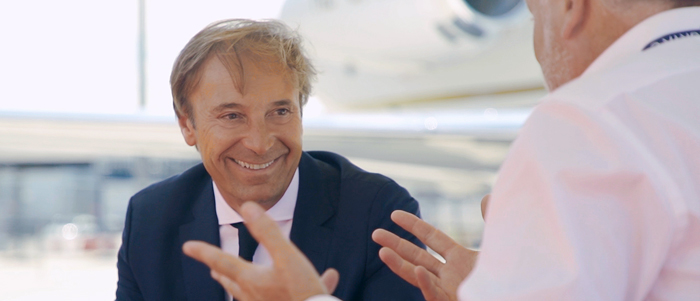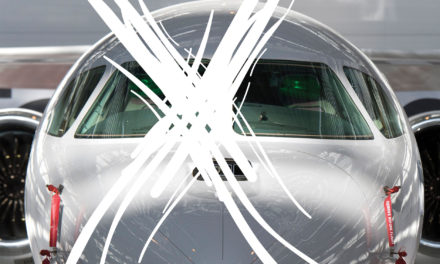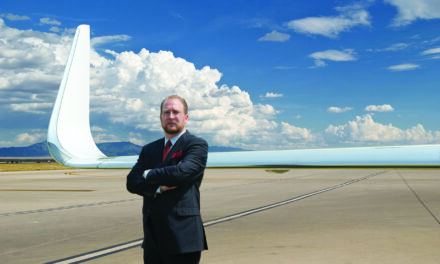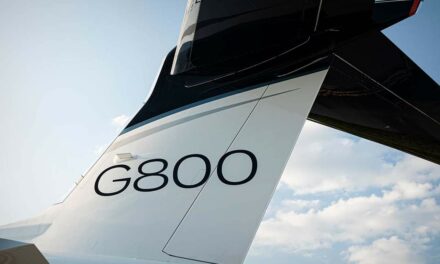By Sylvie Péron
Former Formula 1 driver, Thierry Boutsen and his wife Daniela founded Monaco-based Boutsen Aviation in 1997. A former airline pilot and captain on various jet aircraft Dominique Trinquet has been President of Boutsen Aviation since 2015. Ultimate Jet asked him how the company is adjusting to the current Covid 19 crisis.
How is Boutsen Aviation functioning during the quarantine?
Our core business is impacted, of course. Our primary mission is to enable companies to travel anywhere, anytime, and fast. We sell expediency, and during this difficult period, time is no longer of the essence. We had the choice between being pessimistic and seeing only the difficulties inherent to the situation, or keeping our optimism and watching out for new opportunities as they become available. We chose the latter. We are restructuring in order to face the crisis. Our marketing teams were already up to speed, as they are used to working worldwide. All we had to do really, was adjust our ‘back office’ in order to work from home. We had to keep cool and focus on our current transactions. Teamwork is our strength. Our collaborators are supportive and stay motivated. Although we all must strictly apply government procedures to keep each other safe, we remain compassionate with our fellow co-workers, and support the aviation industry. We are extremely grateful to the government of the Principality for the measures that they have put in place, which will help us through this crisis. So we are still operational, albeit with reduced activity, and having to work from home.
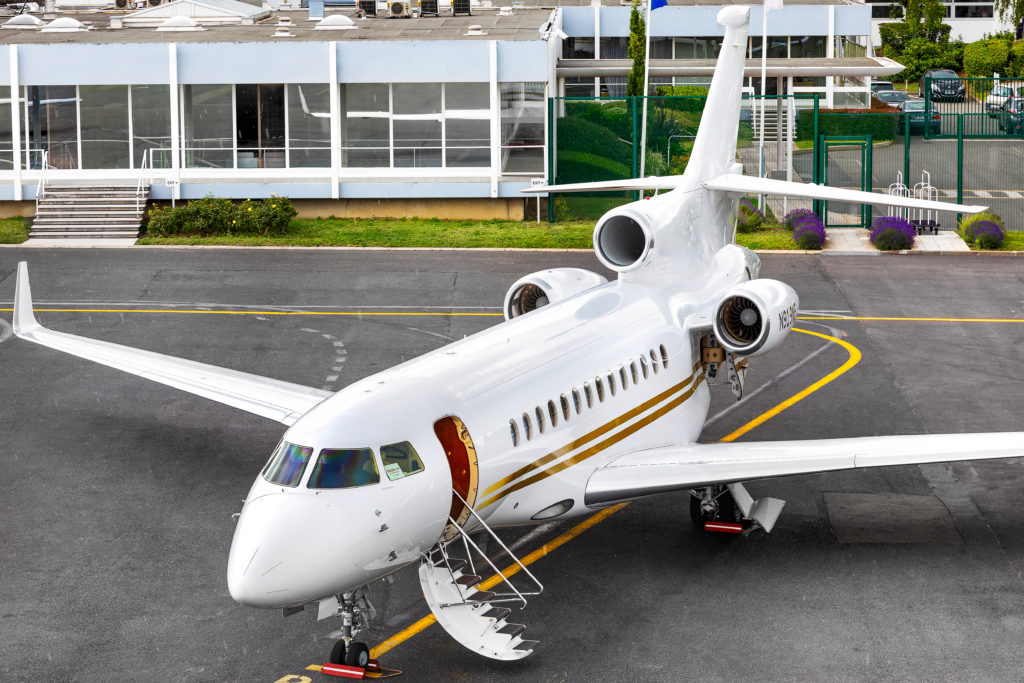
What is the impact on your business?
The coronavirus pandemic is spreading with frightful speed across the world. Aside from the human impact, the global economy is also contracting. Our industry knows no borders, just as the virus. Thus, we were simultaneously impacted in our business with some of our transactions. Luckily, so far, we have had only a couple of cancellations, alongside having two aircraft being delayed prior to their deliveries. Both were going to India, itself in total confinement. Buyers and sellers were stuck, and deliveries postponed. Regarding our on-going negotiations, they are still active, but with a price reduction. Banks appear to be open to financing, but they are growing more cautious because of the fluctuations in the global stock markets.
BizAv has been through many crises before. The current crisis has a global impact, how is Boutsen Aviation adapting to the situation?
Daniela and Thierry Boutsen created the company 23 years ago, and since, it has had to constantly readjust, fine tune its strategies and adapt to the market and to the global economy. But, we are resilient and still motivated. In fact, our industry is aligned with the global economy. There will surely be an impact, but to what degree aircraft values will decrease is anyone’s guess. Although, some industry players are ready to begin speculating on aircraft values, as the restriction period comes to a close. There are two ways to look at the future, where part of the industry sees this crisis as another 2008, with 30 to 40 percent price reductions; others see a slight adjustment of values, clearly something that should have occurred, since values were already declining at the end of 2019. In my opinion, we will see a reasonable adjustment in order to stimulate demand. Obviously, some owners will have to sell for economic reasons. Unlike 2008, when everyone was in dire need of cash flow, as the banks were no longer financing and money was unavailable. Today, corporations have access to savings, and governments have set up all sorts of financial measures in order to help small and large businesses. Inventories have been reduced over the years, so much so, that air framers have built fewer aircraft in the past ten years than they had in the previous decade. OEMs have clearly learned from 2008. Today there are a lot less white tails on the tarmac. Obviously, there will be more aircraft for sale. In fact, the trend has already begun, where several of our clients asking us to valuate their assets, some even asking to sell their aircraft. We are ready to face the demand, and consider each aircraft we have in our portfolio with the same level of quality as before. Our Market Analysis department will be very busy over the coming months, but it’s a collective effort, and everyone will evaluate dutifully every single aircraft.

What was the situation on the pre-owned market before the pandemic?
In 2019, we already saw a reduction of the volume of our transactions, and many other brokers experienced that situation, compared to 2018, which turned out to be a very active year. Let’s not forget our activity is closely connected to that of the United States, which represents 80 percent of the BizAv market. In an election year, acquisition projects are put on ‘stand-by’, the closer you get to the November election date. The market is quick to react and values clearly went down in Q3 2019. The Trump administration cancelled the tax-rebates, originally initiated by President Trump, which caused a serious impact on transactions in the US towards the end of the year. So before the virus hit, we were not in an upward transactional curve.
How do you prepare for the post-crisis back-to-business as usual mode?
Many companies are not yet ready to disperse with their aircraft, unless for financial reasons. For some who can afford it, they will cease flying commercial and move to business aviation. We are bound to go through a dull and probably long period, punctuated with some hiccups, but the real back-to-business mode will only occur once the US market picks up. All through the past year, it has shown how reactive it could be. The menace of the coronavirus pandemic will eventually go away, and the world’s economy will get back on its feet, but the question remains how long this will take. In my opinion, this dramatic episode will soon be behind us. But, before starting to think about how we’ll get out of it, we have to care for those fighting the virus: doctors, nurses, but also our next-door neighbor, or even an elderly person needing our help. We must remain humble. We will overcome this crisis, and soon be able to live free again!

